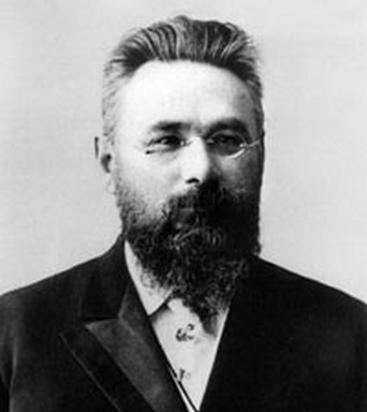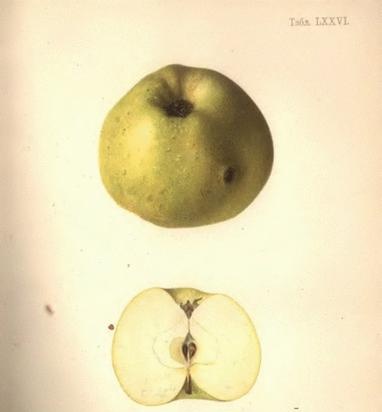|
 Nature has divided fruits between people. Central Russia got an apple, a cherry; the island of Sri Lanka - pineapples, Africa - oranges, Indonesia - delicious durian ... Nature has divided fruits between people. Central Russia got an apple, a cherry; the island of Sri Lanka - pineapples, Africa - oranges, Indonesia - delicious durian ...
 Recent transport has changed the map of the distribution of earthly goods. Bananas have become as common in stores in the North as they are in the South. You will not surprise anyone with oranges either in Moscow or in Norilsk. Apples have penetrated the humid tropics and even received a monument there. The competition is now between these three colossus of the fruit marathon. Oranges came to the fore. Bananas and apples are not far behind. Other juicy fruits are far behind. Recent transport has changed the map of the distribution of earthly goods. Bananas have become as common in stores in the North as they are in the South. You will not surprise anyone with oranges either in Moscow or in Norilsk. Apples have penetrated the humid tropics and even received a monument there. The competition is now between these three colossus of the fruit marathon. Oranges came to the fore. Bananas and apples are not far behind. Other juicy fruits are far behind.
Of these others, others are no worse than leaders. Many will prefer the Vladimir cherry to the orange, they will buy good plums more willingly than the pineapple, and the peach will certainly not yield banana... It is not necessary to carry it even far away. Why are you so behind peach, plum and cherry? There are many reasons, but the main one is that we do not know the mysteries of their lives. So far, we cannot protect cherries even from starlings. Not in any country.
Other fruits require a habit. Mango, for example, not everyone likes from the first acquaintance. It seems that the smell is not the same ...
And of course, we don't know the varieties well. Take a pomegranate. Excellent fruit. Vitamin C concentrate. An acid lover buys a pomegranate, and he comes across a fruit with fresh pulp. And the other, on the contrary, is too sour. It is unlikely that he will buy next time. Many people still confuse orange with tangerine, apricot with dried apricots, cherry with cherries. And even connoisseurs wandered in the wilds of apple varieties!
In the summer of 1881, a storm split one of the most productive apple trees on the estate of the landowner Bezradetsky in Ukraine. The owner took the ax to cut off the broken trunk, but the magistrate P. Zhukovsky, who was nearby, stopped him. To chop down an unfortunate tree just because it, overloaded with fruits, could not withstand?
Moreover, the fallen tree looked completely unusual. Smooth green bark covered not only the young branches, but also the thickest and oldest branches. The leaves bore a shade of some nobility and beauty. But the height of the splendor was the fruit: thick green, without the annoying blush. They were so similar to each other in size and shape, as if they had been stamped at a factory.
On Christmas Day 1883, the judge received a box of the same apples from his friend from Chigirinsky district as a present. The box was placed in an empty room. When the judge walked in the next day, the scent took his breath away. The smell, in general, was pleasant, delicate, but so strong, as if there were not one box of apples in the room, but ten or a hundred. Not everyone could withstand such a neighborhood. Some went out into the corridor to catch their breath, and enjoyed the aroma from there when the concentrate was slightly diluted with fresh air. The taste of the fruit also exceeded all expectations.
The judge again remembered the apple tree broken by the storm. And the landowner wanted to uproot such perfection? However, the future was preparing new surprises for Zhukovsky. There were several broken fruits in the box. The judge cut them into pieces and put them side by side on the table. By the spring, they dried up and turned into ordinary dried fruits. In this case, another variety would have rotted long ago.
Intrigued by this turn of the case, the next year the judge went to the landowner and bought from him a crop from the same apple tree that was spared and not cut down. He shook the crippled trunk. Fruit rain fell on the ground. Zhukovsky collected so much that ten large boxes came out. He loaded a whole cart with them. And in the crown it did not seem to diminish. The next year Zhukovsky again appeared to Bezradetsky. But he was outstripped. Another person bought the crop. From that same crippled apple tree, he collected a whole cart. She was dragged with difficulty by two hefty oxen.
The judge understood the reason for such unheard of harvests. He did not find a carrion under the crown of the cripple. Insects did not damage the fruits of the mysterious apple tree. There was something about them that scared off parasites. By the way, birds were not tempted by fruits either. They were deceived by the piercing green color of the skin. It seemed to the birds that the apples were too green and that they could wait a little longer.
The judge wanted to know what kind of brand behaves so brilliantly. He wrote to connoisseurs in Kiev, Warsaw and the Crimea, in the Nikitsky Botanical Garden. Kiev and Warsaw answered firmly: the aforementioned variety is not listed in world catalogs. Bezradetsky could not add anything to this. He acquired his cripple from the sugar refinery P. Simirenko from the city of Mliev in Ukraine. Simirenko was a famous person.
He was friends with Taras Shevchenko and even helped him to publish Kobzar.
 He was fond of gardening and tested all kinds of apple trees in his nursery. “Let this incomparable tree be called from now on the retirement of Simirenko,” the judge decided. Under this name he sent two apples to an exhibition in St. Petersburg. The Horticultural Society unanimously awarded the new rents a silver medal. And soon he was included in the catalogs of French fruit firms. He was fond of gardening and tested all kinds of apple trees in his nursery. “Let this incomparable tree be called from now on the retirement of Simirenko,” the judge decided. Under this name he sent two apples to an exhibition in St. Petersburg. The Horticultural Society unanimously awarded the new rents a silver medal. And soon he was included in the catalogs of French fruit firms.
Subsequent events, however, took a completely different turn. A belated letter came from the Nikitsky Botanical Garden. The head gardener E. Klausen reported: Simirenko's renette is very similar to the English variety Zelenka Wood and is probably the same thing.
Zhukovsky was shocked. He himself, as a judge, was far from the mysteries of fruit growing. Klaussen is an authority! And Zhukovsky decides to abandon his own name. He writes articles for magazines that there was a mistake and what was considered a new variety, in fact, a forgotten English work. And to this day our retirement would be Zelenka Wood, if the son of the late sugar refiner, an excellent fruit grower L. Simirenko, had not intervened.
“The new Renethus arose suddenly,” he wrote to Zhukovsky, “as an accidental descendant of one of the trees that my father brought from Belgium. The tree was the most ordinary and did not stand out in any way. But one of the seedlings did not come out to the mother. He is a child of our Ukrainian nature ”.
The controversy began. Both of them published article after article in magazines. Finally, tired of the argument, Simirenko decided to get the forgotten English variety and compare it with his brainchild. And now the fruits are on his table. The grower compares them in appearance. Indeed, they are very similar, although there are still differences. And the apple trees themselves don't look the same. But the main thing is this: Zelenka fruits do not smell anything. They are like turnips. The aroma of Renet Simirenko has already been mentioned.
It is interesting what the respected opponent Zhukovsky will now answer. But the judge died unexpectedly, and the dispute ended of itself. And to this day, Simirenko still surprises gardeners with the fact that he is not touched by any evil spirits. And if it touches and you come across an apple with a wormhole, then most likely it is not an incomparable Renet, but that same Zelenka Wood, very similar, but not at all like that.
And now I would like you to pay attention to one very important circumstance, namely, that under the influence of the Ukrainian climate, some shifts have occurred in the seedy variety and a masterpiece has emerged.
A. Smirnov. Tops and roots
|